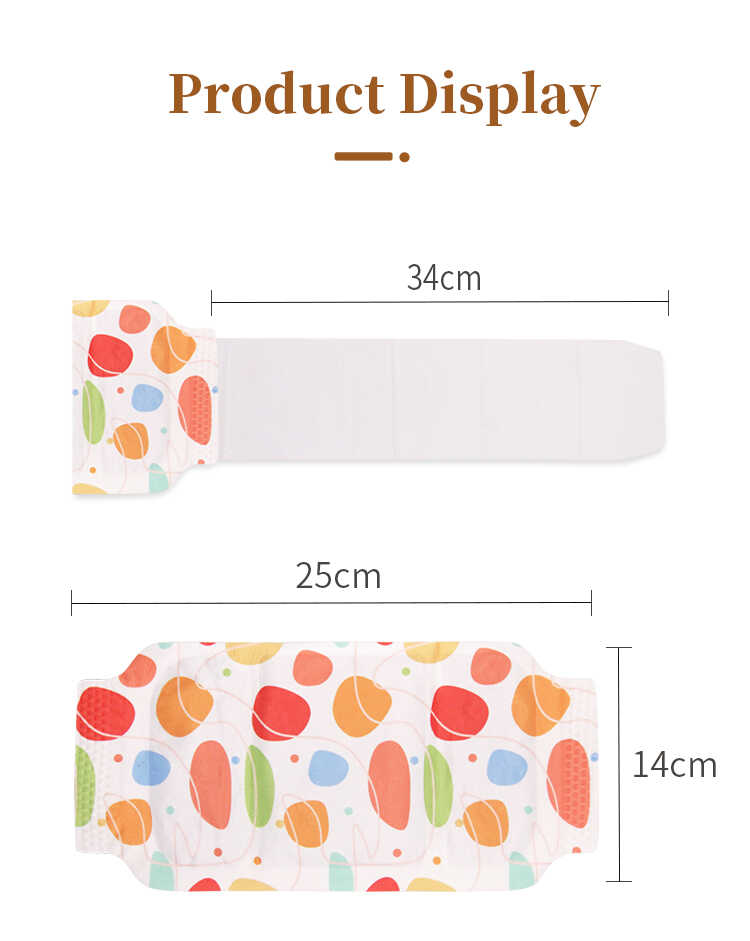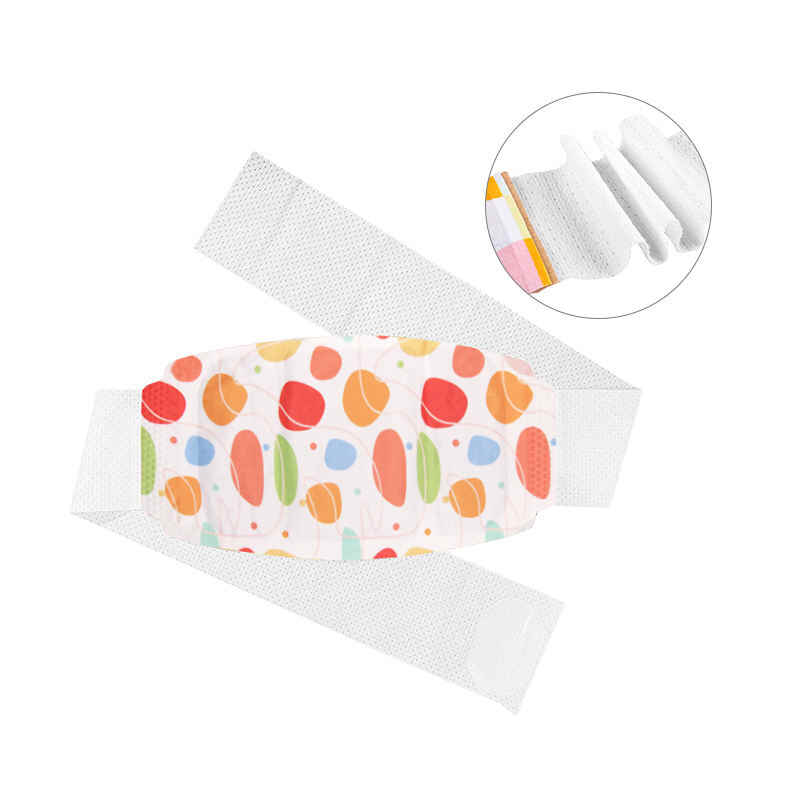Custom vs. Private Label Waist Heat Patches: Which Strategy Boosts Your Brand Value?
The global market for heat therapy products—especially waist heat patches—continues to grow as consumers seek convenient solutions for back pain, menstrual discomfort, muscle stiffness, and long-hour office fatigue. For brands entering or expanding in this competitive segment, one key strategic decision will directly influence product positioning, customer perception, and long-term success: Should you choose Custom Waist Heat Patches or Private Label Waist Heat Patches?
Both strategies offer unique advantages, and the right choice often depends on your brand’s goals, resources, and market expectations. With the support of a reliable Waist Heat Patches Manufacturer or a professional Waist Heat Patches Supplier, brands can leverage either path to build strong market presence. This article explores the differences between the two, their benefits, and how to evaluate which approach aligns best with your business strategy.

1. Understanding the Difference Between Custom and Private Label Waist Heat Patches
Before choosing a strategy, it’s essential to clearly understand what each approach involves.
1.1 What Are Private Label Waist Heat Patches?
Private label products are ready-made formulations developed by a Waist Heat Patches OEM manufacturer. Companies purchase these existing products, add their branding, and launch them under their own label.
Key characteristics:
Fastest time-to-market
Lower development costs
Proven formulas with strong consumer acceptance
Flexible packaging customization
Ideal for startups and growing businesses
Private label is designed to help brands enter the market quickly without building their own R&D capabilities.
1.2 What Are Custom Waist Heat Patches?
Custom products are fully tailored to your brand’s requirements. This involves working closely with a Waist Heat Patches Manufacturer to create a unique formulation, design, heat duration, and user experience.
Typical custom development includes:
Custom heat formulas (8–12 hours, extra hot, etc.)
Unique patch size, shape, or ergonomics
Personalized ingredients (e.g., herbal blends, aromatherapy)
Exclusive adhesive materials
Unique packaging and branding
Custom solutions require more investment but allow full differentiation.
2. How Each Strategy Impacts Your Brand Value
Brand value refers to recognition, reputation, consumer trust, and perceived product quality. Both Custom and Private Label strategies help enhance brand value—just in different ways.
3. Benefits of Private Label Waist Heat Patches for Brand Value
For many brands entering the heat therapy industry, private label provides a solid foundation.
3.1 Faster Market Entry
Since the formulation already exists, brands only need to finalize packaging. This allows:
Rapid product launch
Quick response to market demands
Faster cash flow and brand exposure
Speed is a major competitive advantage in fast-moving wellness categories.
3.2 Lower Risk and Cost Efficiency
Private label minimizes:
R&D costs
Product testing expenses
Production setup time
This is ideal for small and medium-sized businesses or brands testing new markets.
3.3 Trusted and Proven Formulas
A reliable Waist Heat Patches Manufacturer typically offers formulas that have already passed:
Stability testing
Skin sensitivity checks
Temperature safety validation
This gives brands confidence when entering global markets.
3.4 Scalability with a Strong Waist Heat Patches Supplier
Private label manufacturing supports high-volume scaling without the brand needing to invest in factory equipment. With the right Waist Heat Patches OEM partner, brands can quickly expand distribution.
3.5 Ideal for Retailers, Distributors, and New Brands
If your brand’s primary goal is speed, accessibility, and affordability, private label is a strategic choice.
4. Benefits of Custom Waist Heat Patches for Brand Value
Custom development is best for brands aiming for deeper differentiation and stronger customer loyalty.
4.1 Unique Market Positioning
A custom formulation creates an exclusive product offering that competitors cannot easily replicate. Examples:
Extra-long heat duration
Organic or herbal pain-relief blends
Innovative patch shape or flexibility
A premium wellness brand look
Such uniqueness enhances brand status and perceived value.
4.2 Stronger Brand Identity
Consumers remember brands that offer something different. Custom products allow:
Personalized scent profiles
Target-specific formulas (sports, women’s health, office workers)
Proprietary technologies
This strengthens brand storytelling and recognition.
4.3 Higher Customer Loyalty
When consumers experience unique benefits, they are more likely to:
Repurchase
Recommend your brand
Trust additional product lines
Custom products build emotional connection, which is essential for long-term brand value.
4.4 Stronger Protection Against Price Competition
Private label markets tend to compete heavily on price. Custom products allow brands to charge premium prices due to:
Exclusive formulas
Innovative design
Enhanced comfort and heat control
This improves long-term profitability.
4.5 Ideal for Established Brands or Innovation-Focused Companies
If your brand wants to lead the market, custom development is the stronger strategy.
5. Cost, Timeline, and Complexity Comparison
5.1 Cost
Private Label Waist Heat Patches: Low to medium
Custom Waist Heat Patches: Medium to high (depending on R&D depth)
5.2 Timeline to Market
Private Label: 2–6 weeks
Custom: 2–6 months
5.3 Minimum Order Quantity (MOQs)
Private label usually has lower MOQs
Custom solutions generally require higher MOQs due to special materials
5.4 Complexity
Private label is simple and fast
Custom development requires collaboration with R&D teams and multiple test cycles
6. Choosing the Right Strategy for Your Brand
Your choice depends on your business stage, resources, and long-term vision.
6.1 Private Label Is Best When:
You want to enter the market quickly
You have limited budget
You are testing new channels or regions
You prefer proven, low-risk formulas
You prioritize fast turnover and bulk sales
This is common for:
Retail chains
E-commerce sellers
Wholesalers
New brands with limited R&D resources
6.2 Custom Development Is Best When:
You want to create a premium product
You need to differentiate strongly from competitors
Your target market is niche or highly specific
Your brand strategy focuses on innovation
You are building long-term brand identity
This is ideal for:
Leading wellness brands
Sports brands
Women’s health brands
Established companies expanding product lines
7. The Role of a Reliable Waist Heat Patches Manufacturer in Both Strategies
Whether you choose custom or private label, partnering with a trustworthy Waist Heat Patches Manufacturer or Waist Heat Patches Supplier is essential.
A capable OEM partner ensures:
Consistent product quality
Advanced manufacturing technology
Reliable supply chain
Safe and tested formulations
Professional customization capabilities
Regulatory support for global exports
A strong Waist Heat Patches OEM partner ultimately determines how successful your chosen strategy will be.
8. Why Many Brands Combine Both Strategies
In 2025, a growing number of companies blend custom and private label approaches.
For example:
Start with private label products to build initial sales
Add custom products later to enhance brand identity
Use private label for general audiences
Use custom products for niche markets (athletes, office workers, women’s wellness)
This hybrid approach allows brands to:
Maximize profit
Reduce risk
Build reputation
Scale quickly while innovating
Working with a flexible Waist Heat Patches Supplier makes this dual strategy possible.
9. Case Example: How Strategy Impacts Brand Value
Imagine two brands entering the waist heat patch industry:
Brand A: Private Label Strategy
Launches quickly
Offers affordable, widely-accepted formula
Builds sales volume fast
Competes on convenience and price
Brand value driver: Speed and reliability
Brand B: Custom Strategy
Creates an herbal-infused 12-hour heat patch
Designs ergonomic contours and premium packaging
Targets a premium health-conscious market
Brand value driver: Differentiation and innovation
Both brands succeed—but in different ways. Choosing the right strategy depends on your brand narrative and market goals.
Conclusion
Both Custom Waist Heat Patches and Private Label Waist Heat Patches offer powerful pathways to build brand value. The best approach depends on your brand’s goals, budget, timeline, and desired level of differentiation.
Private label is ideal for fast market entry, low risk, and reliable quality.
Custom development is perfect for brands seeking uniqueness, long-term loyalty, and premium positioning.
With the support of an experienced Waist Heat Patches Manufacturer and a flexible Waist Heat Patches OEM partner, your brand can achieve sustainable growth through either—or both—strategies.
If your goal is to enhance brand value, the most important step is selecting a trustworthy Waist Heat Patches Supplier capable of delivering outstanding quality, professional R&D support, and scalable production capacity.
Related Questions & Short Answers
1. Which option is better for new brands: custom or private label?
Private label is usually better for beginners due to lower cost, lower risk, and faster launch.
2. Do Custom Waist Heat Patches offer higher profit margins?
Yes. Custom products are unique and premium, allowing brands to set higher retail prices.
3. Is it possible to switch from private label to custom products later?
Absolutely. Many brands start with private label and develop custom products as they grow.
4. How can I choose the right Waist Heat Patches OEM partner?
Look for manufacturers with strong R&D capabilities, certifications, large production capacity, and proven export experience.
5. Do private label products offer good quality?
Yes—when sourced from a reputable Waist Heat Patches Manufacturer, private label products can match or exceed market standards.






